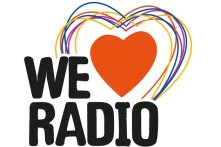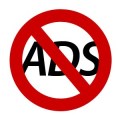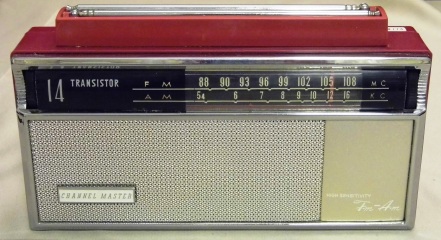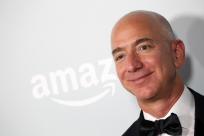 I read a recent article in Bloomberg about how in an age of cord cutting, where millions of Americans are leaving the cable bundles and abandoning traditional TV, others are staying put.
I read a recent article in Bloomberg about how in an age of cord cutting, where millions of Americans are leaving the cable bundles and abandoning traditional TV, others are staying put.
Why?
The big reason should scare anyone working in ad supported media: “Our customers don’t want to cut the cord because they’d have to give up critical features like the ability to skip commercials…” said Jay Roth, chief marketing officer at Dish Network Corp.
Commercials = Clutter
A former colleague of mine at the university wrote to me the other day about the changes going on in higher education and the field of radio broadcasting. He wrote:
“I’ve also had it with local radio and TV, too. Too many commercials back to back to back – it’s like classified ads. Who remembers the 5th ad in a spot set, even if it is well written? (most are not). Thank goodness for SiriusXM. That’s where I am, unfortunately.”
Here’s the concerning point of sharing my colleague’s comment, this person grew up, worked in and taught AM/FM radio, and is of the age group that should still be “in love” with the business.
We have plenty of data showing how the younger age groups don’t even own a radio, instead listening to audio content via their smartphone or some other connected device.
So, what makes radio listeners stay?
The Radio Habit
A 2017 Jacobs Media survey found that AM/FM listening is pure habit. 91% of survey respondents said they listened to radio for an hour or more per day, but TV/video and the smartphone usage came in at 87%.
Digging a little deeper, respondents cited hearing their favorite music and a connection to their favorite air personalities as reasons they listen to AM/FM radio.
Radio’s Free
The 2018 Infinite Dial study from Edison Research and Triton Digital reported that 82% of respondents who have ridden or driven in a car in the past month listened to traditional car radio.
Pandora For Brands authored a “State of AM/FM Radio: What Advertisers Need to Know” piece that said:
“True, America’s oldest electronic mass medium – AM/FM radio – is still alive, kicking and serving throngs of listeners every day, but it’s also being disrupted by today’s growing digital media landscape. Radio has prospered for so many decades because it’s free, easy-to-use and there are tons of them around. In fact, it used to be the only way to enjoy music without having to invest in a record collection or to hear news, sports and traffic information on-the-go.”
But the real shocker was this data point:
“Currently, people between the ages of 50-60 years old who have mobile devices are spending more time with mobile apps than they are listening to AM/FM radio.”
-Nielsen Total Audience Report, Q1 2017
This age group was raised on AM/FM radio!
New Habits
I bring this all up because we are seeing new habits being formed with the new disruptive media technologies.
It’s like the old saying “Once they’ve seen New York, how are you going to keep them down on the farm?”
Once you experience Netflix or Amazon Prime, it’s hard to return to ad supported TV. And those folks who still buy the cable bundle, do so in part to have a way to eliminate the commercial clutter and to produce a more Netflix type of viewing experience.
Once you listen to your music on Pandora, Spotify, Apple Music or access your music via a smart speaker, you will be hard pressed to go back to a cluttered listening environment.
But the biggest new habit in our short-attention-span world is On Demand.
Whether we are talking about TV or audio, we are now a culture of wanting things when we want them, not when they are served up, and that’s the juggernaut all traditional media are faced with.
Newspapers, television and yes, radio, serve what they want you to have.
Today’s media consumer knows they have choices and they don’t have the time or patience for the way it used to be.
The Future is…
In 1967, the movie “The Graduate” had a scene where the Dustin Hoffman character was taken aside by a family friend who advised him about where the future was for a person his age. The answer was one word: “Plastics. There’s a great future in plastics.”
What might a friend advise a young person today to focus on? Podcasts?
Focus on the Things That Don’t Change
 Jeff Bezos’ secret sauce has been to focus his efforts on things that would not change.
Jeff Bezos’ secret sauce has been to focus his efforts on things that would not change.
He said the question that he’s always asked is “What’s going to change in the next 10-years,” but the question that’s rarely asked is “What’s not going to change in the next 10-years?”
It’s that second question he feels is most important.
Bezos doesn’t concern himself with what will change, but on what won’t change. Then working to make those things better and better and better.
With this strategy, Bezos has become the richest man in the world.
This is what the radio industry should be doing.

“Commercial stop sets are creeping up to unlistenable levels,” says Ed Christian.
The Saga CEO usually comes to quarterly calls with one or two big themes, and this time he weaves in “the sheen finally beginning to come off digital” due to what Ed says is the obtrusive tracking and ad-serving. He says “people have trained their eyes” to avoid display ads. But he asks “what is radio doing with this opportunity? Not much.” He believes “some companies are going the wrong way,” piling up tens, fifteens, thirties and sixties – commercials, that is – so the station can be “unlistenable.” It’s the familiar problem – “when rates are driven down, broadcasters are tempted to make it up in volume.” Ed was going from yesterday’s 11am call to an audit meeting, where he would be reviewing the length of station stop sets from various Saga stations.
AND…
With commercials, “There has to be quality control.”
More from Saga’s Ed Christian, because to him “it goes two ways” – length and quality of each commercial. Ed recently talked with WBEB Philadelphia’s Jerry Lee, “a maniac about control of commercial length and quality” who’s preached for years about pre-testing commercials for effectiveness and retentive value. TV does it routinely, but not radio. Christian says the outside company Jerry uses to test spots recently reviewed spots for the top 50 radio advertisers in the Chicago market – and found that “71% of them did not have retentive value.” Few group heads are talking about the creative aspect of commercials, but Ed Christian has been known to call up a local manager and ask them to “go to this client and tell them we have to change this commercial, because it doesn’t fit” a particular station’s audience. Ed says when it comes to commercials, “One size does not fit all.” A wrong spot can “destroy the ambiance of the radio station and destroy” the client’s image. To the guy who runs Saga, “This is something that we as broadcasters have to do a better job of, in our commercial creative endeavors,” working with partners at clients and agencies.
-Tom Taylor’s NOW, 8-8-2018
LikeLike
Great logic….and radio is about to turn 100. Movies are older. Great shows stay; weak ones go away! And, radio can go worst to first in an instant.
Stan Freberg – “Who Listens to Radio?” Featuring Sarah …
http://www.youtube.com/watch?v=OyenSyjSr7k
LikeLiked by 1 person
Take CBS 88 news and 1010wins in New York.such boring and aggravating commercials.the example is “geico”and so many cancer and nursing homes.over and over again.enough already
LikeLike
Random thoughts in no order: I was in a store the other day. I guess they had Pandora on. 2 songs.. one long commercial, 2 songs…one long commercial. A friend has the app on his phone, and he was constantly selecting the next song because it just wasn’t playing what he wanted. I’m mostly seeing it used by those who want play it in the background. I can see younger demos using it. When I was in my teens and 20’s my main source for music was cassettes (I would of been a Panodra user too). I was fascinated with radio but I probably spent less than half of my time listening to it. By the time I was in my late 20’s my desire to own the latest music, and keep my CD and record collection up faded. I just wanted to jump in the car and scan the radio. I take surveys with a grain of salt. Radio is doing good, radio is doomed, blah blah blah. So far we are on track to have our best year. With the addition of smart speakers and apps like Nextradio we are positioned to make gains (we promote both on our stations). One more thought on stopsets. Have you ever tried to watch your favorite movie on Cable TV? 7 minutes of movie each segment followed by 8 to 10 commercials in each set. Complain yes, but the viewers keep coming back. Repetition yes. I’ve watched Men In Black, and Meet The Fockers several time this month. Complain yes, but we keep coming. We look at “You play the same songs over and over” as a compliment. It means you are listening everyday. Weekends are repetitious too, but we look forward to them. Have a great one!
LikeLike
I feel like the missing ring is GREAT Advertising and or Publicity. That is the not so secret Steak or BBQ Sauce we’d be missing with our Steak and Ribs. I don’t know if it saves us the trouble of namely a lot of things, but, it helps people’s behavior and even though we have Plaster, but, most of us want to leave home than stay at home for good.
LikeLike
A wise man once said, “We are a nation of lonely people, and radio is your friend.” I still listen to radio a majority of the time, because the one thing apps and services don’t give you is a live human being that is knowledgeable and passionate about the music and the audience and can give a local flare to the presentation beyond a sterile, predictable playlist. There are still a few terrestrial stations that haven’t moved to a looped/pre-programmed generic format dotted across the planet. Ironically you now need apps to find and listen to them now.
LikeLike
Darrin, there’s nothing better than LIVE radio with a host that knows the people and the community the station is licensed to serve.
Yes, there are still a few still out there, but isn’t it ironic that – as you point out – you need an App to hear them.
Thanks for sharing your thoughts.
-DT
LikeLike
Darrin – you nailed it! That so many stations don’t have anyone live and local on the air is disappointing. Radio has trained me to use my smart phone for things like weather or breaking news because I know the person on the air recorded their drops several hours or days ago. The old Drake-Chenault automated formats had more personality with better production than most of what I hear today.
LikeLike
Do you know what’s worse than the commercial breaks on broadcast radio? Commercial breaks on the Internet stream of those same radio stations. Instead of just streaming the same commercial breaks as the transmitter many get stuffed with a smaller unique number of commercials that the listener is subject to over and over again. IHeart apparently made a large sale of ad time to a company that sells “testosterone boosters”.
Problem #2. When I listen to radio in my home or office it’s always on my Google Smart Speaker. Just call up any station in the U.S. and Google knows if it’s on the TuneIn or IHeart app. But Entercom stations can no longer be heard on my Google Assistant because Entercom moved its stations off TuneIn and onto Radio.com which they acquired from CBS Radio along with the stations. Google’s share of the smart speaker market is about 25% and rising so this is no small matter. If you ask Google to stream an Entercom station it unhelpfully says: “I looked for W___ but it either isn’t available or can’t be played right now.” I still keep up with broadcast business news so I knew what happened but my wife was completely dumbfounded when she discovered it.
Radio.com integrates with Amazon Echos but it’s a two-step process. Me: “Alexa, open radio.com”. Echo: “Okay, what station?”
LikeLiked by 1 person
Yep, and TuneIn has been going to town on the same three Progressive Insurance ads for over a year now. Didn’t know about Radio.com, though. I will check it out. That may explain why a couple of my regular listens have disappeared. So it looks like streaming radio is going the same way as Netflix and the myriad new services started by individual networks and studios. We go from one good idea with most of the content to a dozen nearly-identical experiences with a fraction of the content each and no one working to innovate or advance the feature list. Annoying.
LikeLiked by 2 people
Excellent observation Darrin. -DT
LikeLike
Yes Jerry, you raised two very valid points.
The internet streams of many stations have commercial breaks that seem to go on forever – sometimes this is due to the terrestrial station airing traffic reports or some other feature that is simply covered with repetitious ads/promos.
And yes, since Entercom left TuneIn, it left many in the lurch. I didn’t know about the two step process to listen to former CBS radio stations on an Amazon Echo. Thanks for that tip!
-DT
LikeLiked by 1 person
Interesting. Quick question. How does all of this jive with the pleas for additional de- regulation? How does a company that owns 8 FM stations (or all of them in smaller markets) better compete with Pandora, You Tube Goggle or Facebook? * stations with never ending spot sets instead of 5? In most cases many of the spots are National make goods for network news or syndicated programming. They offer me nothing of value.
LikeLiked by 1 person
You asked the “64-Thousand Dollar Question” Gregory. -DT
LikeLike
Bravos, Dick. Good post. Exactly the right question: what’s not going to change? My thought is the solution set begins by understanding what business we’re in. Aggregate audiences which are valuable to buyers.
At some point, Bezos realized his business was about selling things rather than selling books. This change of focus, his drive (and investments) to create a buying experience enabled by a cutting-edge tech platform radically transformed his original online concept. He went from bookseller to mass merchant.
There will always be an audience for entertainment and information. There will always be a need for companionship. As nothing stops the advance of technology, there will always be new ways for people to get what they need or want.
Whether the organization is commercial or public/community it will always need to aggregate an audience. Commercial stations must develop audiences attractive to buyers. Public/community stations must develop audiences which include patrons; those willing to provide financial and/or volunteer support in a percentage that sustains the operation.
Allow me to suggest: the challenge at hand is how to compete for the future. It is not how to make our current business model work better going forward. We need to admit that optimization of that model is finite. Change is good. We should embrace that notion in earnest.
Don’t worry about the glass being half-empty or half-full. Let’s get serious about who’s pouring. Game on.
LikeLiked by 1 person
Thank You Dave for sharing your insights. I always learn from you. -DT
LikeLike
Didn’t Jeff Bezos just kill off the entire podcasting division at Audible? I’m pretty sure that means he thinks podcasting is not the future.
LikeLike
Yes, I just read about that too. It’s a curious development that bears watching.
Obviously, Amazon has a massive amount of data about its customers and makes decisions based upon that information.
As we say in the broadcast business, stay tuned.
-DT
LikeLike
Radio will never die no matter what.
LikeLike
By “Radio” are we talking method of transmission, like via AM or FM, or are we talking about a form of communication? If it is the latter, I would agree. -DT
LikeLike
Pingback: Best of the Blog 2018 | DickTaylorBlog